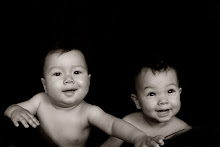 'I may not be what you'd call educated,' she was beginning.
'I may not be what you'd call educated,' she was beginning.'Oh God, Nance, I'm not educated!'
'But you know enough not to make sense.'
I missed the first week of commenting on the Patrick White reading group but have determined to contribute this week, despite feeling a little like Nance, overpowdered and pretending I belong, amidst bewilderment at the sophisticated literary analysis going on around me. Still, normal people could have an opinion on Patrick White too, so here's mine.
In the first week I was mightily relieved to find the book was not actually about a vivisector, but a small working class Sydney boy, Hurtle Duffield, who is sold to a wealthy family. I was really touched by the sacrifice of Hurtle's biological mother - I got the sense that she knew well that Hurtle had no prospects growing up in the slums of inner city Sydney.The first three chapters, which were discussed last week, watched Hurtle growing up in his new family, with his sadly adoring but inarticulate Father, the self-obsessed and superficial Maman, and his sister Rhoda, the frail humpback with the cruel streak of self-protection.
I've been surprised at how readable the book is. It certainly moves at a slower pace than contemporary novels, but I'd heard so much about White's turgid prose that I was expecting a real slog. This is more like - like a meal you have to chew thoroughly rather than gulping down.
Chapters 4 & 5, which are under discussion this week, see Hurtle grown up and starting to make his way as an artist. I disagreed with people who saw H as a selfish, cold child last week, assuming that it was just how some children are. But he has certainly grown up into a horrible adult, a smelly, scummy, pockmarked man who smells of piss and rubs a washcloth over his crutch and neck before going out. Errk.
I really started to dislike him when he cast aside his family so casually as an adolescent. Ungrateful wretch. Adolescents are so wasteful of family love. As a qualitative researcher, i have to bring myself into this and confess that I didn't speak to my family for four years as a young adult. For me it was necessary to find a way to stand alone, to get a sense of myself without their morals and values and expectations. So I presume that this is what Hurtle is doing, too.
Why does he tear up everyone's letters? I interpret that he hates himself - his history - he's trying to recreate himself without their demands on him
Why does he choose to be so destitute? Hurtle deliberately creates himself as a starving, isolated, eccentric artist - there's no indication in his thinking that he's mentally ill, but outwardly he looks indistinguishable from the homeless hobos clutching brown paper bags. Somehow his art comes from the slum-dwelling Hurtle, not the Hurtle that grew up in a mansion. Although i think he's fooling himself and he'd find his middle class upbringing has affected him more than he knows.
In the first three chapters, Hurtle accepted his changed family circumstances impassively. Once he left the first house, Mumma and Pa seemed to barely enter his consciousness. What a wrench, I would imagine, leaving that warm, rowdy, rambunctious crowded Duffield house for the sterile aloofness of the Courtneys. Now we start to see the hurt and anger and confusion that his experience as a pawn has left him with:
It was his worst perversion: to have hung onto a ring, long after the money was spent, the five hundred they sold him for.
This is the first time I get a sense that Hurtle has any feelings at all about his change of family.
For me, White really captures our ambivalence around class in Australia. As a child, Hurtle yearns for the Courtney's life. Once installed there, the stiffness and strictures of the middle class keep them at arms length from each other. Now, he has cut himself off from the family, taken up with a rough speaking whore who is somewhat similar to Mumma with her fascination for the trappings of the rich. He throws aside the ring, his only connection to his family of birth. His feet grow horny and he builds himself what sounds like his own slum, way out in the bush. He encouraged [his body] to coarsen, to resist values he might still find himself longing for.
I'm annoyed with Hurtle at this stage of the book. Maybe his rejection of the middle class, after experiencing both, challenges my own incompetent frantic scrabblings up from a childhood built on the western suburban wastelands of Mediterranean migrant labour. Why on earth would you throw away trips to Europe and well spoken acquaintances with vast libraries and charity works?
I like White's little joke, where he has Nance say, when she is berating all men for being self obsessed and only wanting to see in their partner a reflection of themselves, 'At least poofs are honest!' (I can't find the exact quote now)
By the way why does the grocer - a respected village ex-councillor - masturbate into the lantana under the lamplight? Do men do that? Eew.

No comments:
Post a Comment